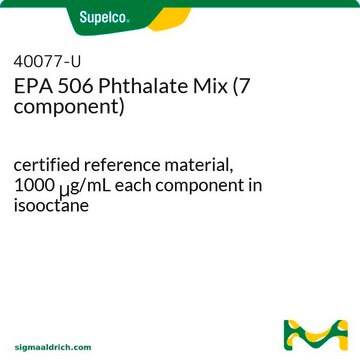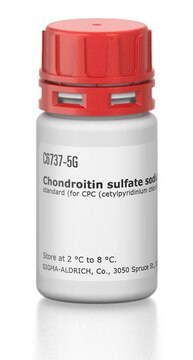49568
Bis(7-methyloctyl) phthalate
analytical standard
Synonym(s):
DINP, Diisononyl phthalate, Phthalic acid bis(7-methyloctyl) ester
About This Item
Recommended Products
grade
analytical standard
Quality Level
Assay
≥97.0% (HPLC)
shelf life
limited shelf life, expiry date on the label
impurities
≤1.0% water
refractive index
n20/D 1.479-1.483
application(s)
environmental
format
neat
storage temp.
2-8°C
SMILES string
O=C(OCCCCCCC(C)C)C1=CC=CC=C1C(OCCCCCCC(C)C)=O
InChI
1S/C26H42O4/c1-21(2)15-9-5-7-13-19-29-25(27)23-17-11-12-18-24(23)26(28)30-20-14-8-6-10-16-22(3)4/h11-12,17-18,21-22H,5-10,13-16,19-20H2,1-4H3
InChI key
HBGGXOJOCNVPFY-UHFFFAOYSA-N
Looking for similar products? Visit Product Comparison Guide
General description
Application
Recommended products
Storage Class Code
10 - Combustible liquids
WGK
WGK 3
Flash Point(F)
Not applicable
Flash Point(C)
Not applicable
Regulatory Listings
Regulatory Listings are mainly provided for chemical products. Only limited information can be provided here for non-chemical products. No entry means none of the components are listed. It is the user’s obligation to ensure the safe and legal use of the product.
JAN Code
49568-50MG:
49568-BULK:
Choose from one of the most recent versions:
Already Own This Product?
Find documentation for the products that you have recently purchased in the Document Library.
Customers Also Viewed
Our team of scientists has experience in all areas of research including Life Science, Material Science, Chemical Synthesis, Chromatography, Analytical and many others.
Contact Technical Service










